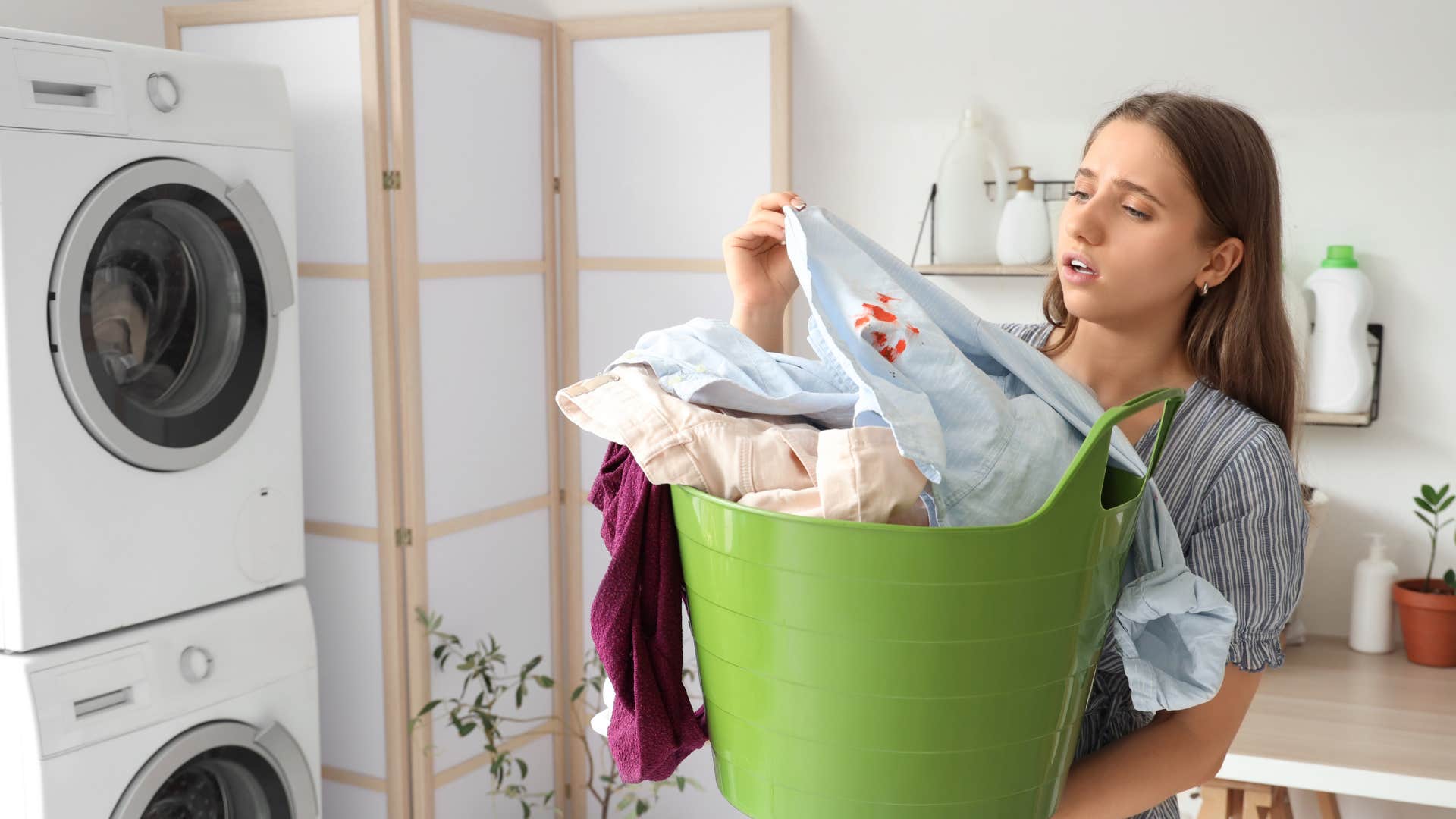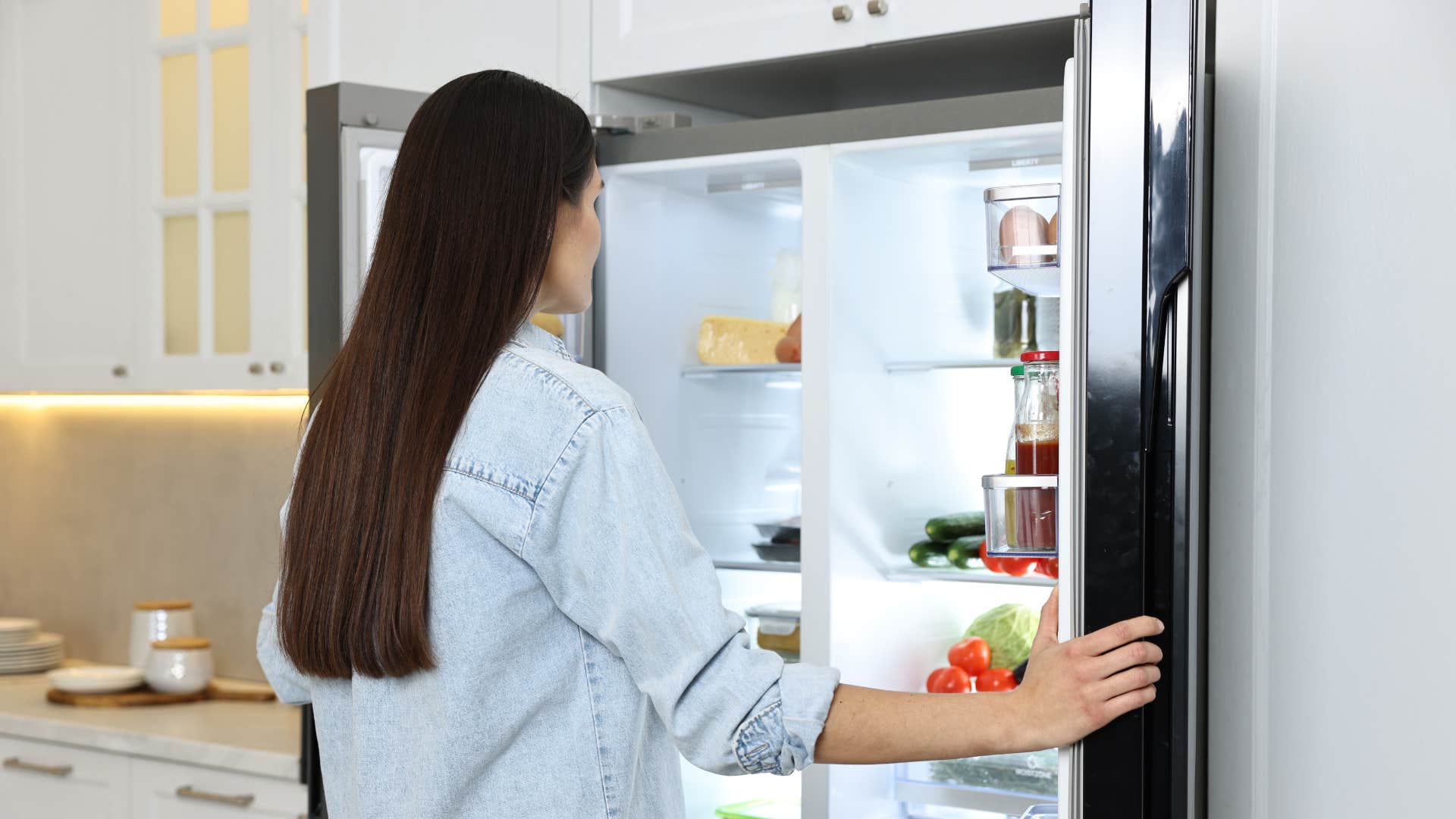People Who Are Sad Usually Keep These 11 Things In Their Homes
The way a person keeps their home may indicate an emotional struggle.
 Inside Creative House | Shutterstock
Inside Creative House | Shutterstock There are things in life that make us feel incredibly sad, whether it's the status of our career or personal troubles at home. No matter what it is, things that negatively affect our mental health are no joke. One in 5 Americans live with a mental illness, but despite their prevalence, people struggling with sadness may seek help.
Sometimes, the way a person keeps their personal living space indicates there's a major problem. It might be piles of unopened mail or dying plants, but people who are sad usually keep these things in their homes. It may be hard to pick up on how someone is feeling, but the way they're living can indicate that they're going through something.
People who are sad usually keep these 11 things in their homes
1. Unopened mail
 Joshua Resnick | Shutterstock
Joshua Resnick | Shutterstock
People who are sad usually keep unopened mail in their homes. They aren't trying to purposely avoid wedding invitations or medical bills, they're likely just trying to reserve their energy when it comes to the bare minimum things. But once they get home and their obligations end, expect their energy to crash as they ignore everything else in favor of self-comfort.
They won't avoid their responsibilities forever. When push comes to shove, they'll do what they need to in order to keep their household afloat. However, don't expect them to open their mail anytime soon.
2. Clothes piling up in the hamper
 Pixel-Shot | Shutterstock
Pixel-Shot | Shutterstock
When someone is truly sad, they're drained physically and mentally. Even if they have clothes they need to wash, they'll let them pile up until it becomes out of control. For those who haven't experienced deep sadness, they won't understand why it's hard to keep their house tidy.
But when someone barely has the energy to take care of themselves, the last thing they want to do is wash and fold clothes for hours. Rather than doing a wash weekly, they only clean them when they've run out of options. It isn't exactly the best option out there; however, when someone's already at the lowest point in their life, delaying laundry is the least of their concern.
3. Expired food
 New Africa | Shutterstock
New Africa | Shutterstock
Sometimes, people look through their fridge and notice expired items, tossing them in the garbage. But for people dealing with sadness, their fridge and kitchen often have many expired food items that they refuse to throw away.
They don't want a bunch of spoiled food around, but because they're dealing with a mental health struggle, they're only focused on the present moment. This means that if it isn't related to their job, relationship, or survival, they aren't thinking about clearing their pantry.
Instead, they'd rather order food and save that problem for another day. But this isn't a great option long-term as, according to a study from Nutrients, frequently eating outside of the home is associated with cardiovascular and cancer mortalities, and leads to lower diet quality and higher intake of unhealthy food.
4. Empty bottles
 FaceBorn | Shutterstock
FaceBorn | Shutterstock
It's not abnormal to have a water bottle or two sitting on the countertop waiting to be thrown out. Despite the tidy homes displayed on social media, a well-lived-in house isn't always going to look glamorous. However, there's a difference between a well-lived-in home and a home filled with sadness.
Nobody means for bottles to pile up, but when they're sad and filled with zero hope, that's when disaster strikes. Slowly but surely, they'll forget to throw their water bottles away, convincing themselves they'll do it later. While their lack of energy is understandable, it might be better to schedule days to empty the bottles or just keep a trash can nearby.
5. Sentimental items from their past
 LightField Studios | Shutterstock
LightField Studios | Shutterstock
People who are sad usually keep sentimental items from their past in their homes, using them as a source of comfort on their bleakest days. From grandma's hand-knit sweaters to recipes passed down, it's nice to have something to cling to.
However, there's a difference between missing something and holding onto something obsessively. And for those who are sad, they tend to hold onto things to the point where they may start to hoard. As a study from Cureus explained, hoarding can cause the physical and mental deterioration of an individual.
6. Half-finished projects
 Zoran Zeremski | Shutterstock
Zoran Zeremski | Shutterstock
It's frustrating to see the half-painted walls or barely organized rooms when stepping into a person's home. Most people will chalk it up to laziness and secretly judge the other person, but when looking at the way most sad people operate, it isn't that surprising.
While sad people do struggle with feeling energized, there are moments when they have spurts of energy. During these rare moments, they might try to accomplish a feat of things. From painting walls to sewing new cushions, their vision is ambitious. But they might get halfway through because once their energy subsides, those projects just end up taking up space.
7. Excessive blankets or pillows
 Alina Kruk | Shutterstock
Alina Kruk | Shutterstock
When life gets tough, the best feeling in the world is a warm blanket and a place to rest. And while comfort is a good thing, people who are sad usually keep excessive blankets or pillows in their homes.
With life becoming increasingly more uncertain and isolated, having something warm and comfortable to cling to can be the difference between losing their mind and staying sane. In fact, having excessive amounts of blankets and pillows helps people ground themselves in reality. This explains why weighted blankets have become so popular.
As a pediatric sleep psychologist Lynelle Schneeberg explained, "Weighted blankets are popular because lying under them provides pressure that can feel very calming. Many people like the feeling of pressure against their body and find it to be quite relaxing."
8. Dying houseplants
 DimaBerlin | Shutterstock
DimaBerlin | Shutterstock
When the energy is completely drained from someone and they're consumed by sadness, their houseplants will begin to wilt and die. In the moment, most people who are going through something might get a plant to encourage them to take better care of themselves. Because, as strange as it may sound, having something to look forward to can help combat these feelings.
Unfortunately, this is just temporary, as sad people become so consumed in their own thoughts, they forget their basic responsibilities. So, while they may have good intentions, once their energy is depleted, don't expect to see thriving plants around.
9. Multiple unused notebooks
 dekazigzag | Shutterstock
dekazigzag | Shutterstock
People have a ton of notebooks for a variety of reasons, whether it's because they want to regularly journal or make lists to keep themselves calm. But for sad people, they often are surrounded by many unused notebooks.
They want to get better and get out of the rut they're in, but taking the time to sit down and write down their feelings is a lot easier said than done. There's no denying how beneficial this is as, according to a study published in Family Medicine and Community Health, journaling can help manage mental health illnesses. But for people dealing with sadness, it's not a concern.
10. Overflowing junk drawers
 SeventyFour | Shutterstock
SeventyFour | Shutterstock
Every home has at least one junk drawer, but people who are sad usually have overflowing drawers all throughout their homes. It's a good thing to be organized, but someone dealing with sadness in this way won't really care that much for tidiness.
With nobody to help or turn to, they will keep these drawers and, by extension, their rooms, a mess. It's a bad habit that can quickly turn dire.
11. Boxes that haven't been thrown out
 Prostock-studio | Shutterstock
Prostock-studio | Shutterstock
People who are sad usually keep boxes that need to be thrown out in their homes. Delivery services are incredibly helpful for them, but their mental state makes it impossible to clean it all up after the fact.
Exhausted and burned out, they'll keep those boxes for months on end. And while their exhaustion is understandable, they must be careful to not let it get too bad. According to the American Psychological Association, clutter can cause stress and anxiety, which can make someone's mental health worse than it already is.
Marielisa Reyes is a writer with a bachelor's degree in psychology who covers self-help, relationships, career, family, and astrology topics.

